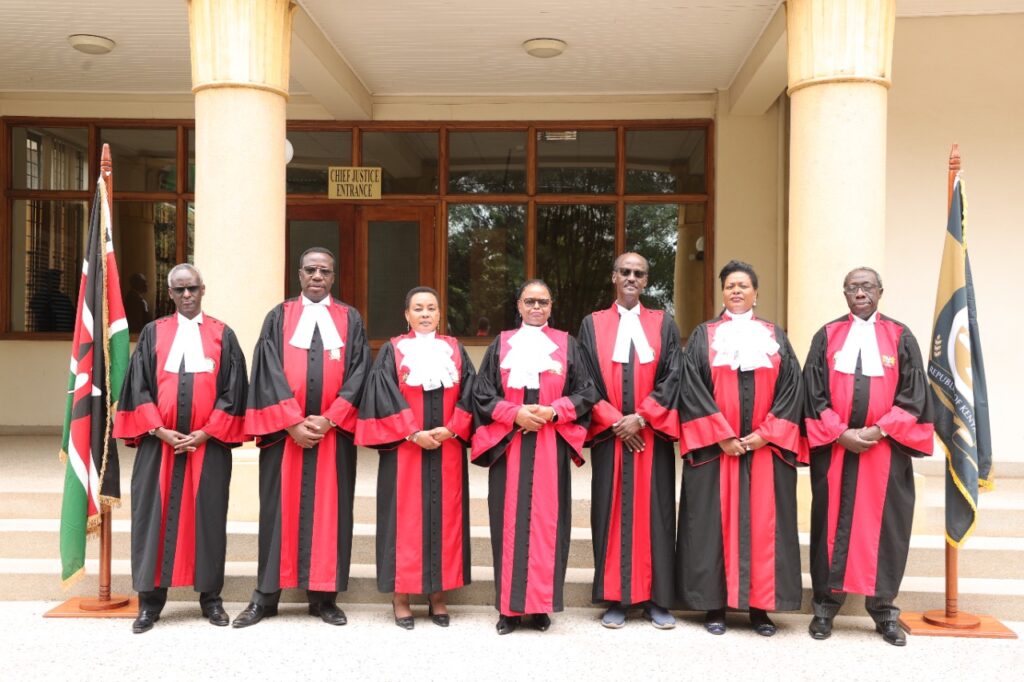In recent weeks, Kenya has witnessed a disturbing escalation of attacks against its judiciary, particularly targeting the Supreme Court.
These attacks not only threaten the independence of the judiciary but also undermine the core principles of our democracy.
The ongoing political rhetoric, coupled with calls for the removal of the entire bench of the Supreme Court, is a direct assault on the very foundation of Kenya’s constitutional framework.
At the heart of this crisis is the contentious political climate that has enveloped the country.
While the judiciary is meant to be an independent body that upholds the rule of law and ensures checks and balances, recent developments suggest that some factions within the political class see the judicial arm as an obstacle to their political ambitions.
The increasing frequency of verbal attacks and legal petitions calling for the removal of the current Supreme Court judges is a clear sign that this growing tension is being fueled by political motivations.
One of the most alarming developments has been the filing of multiple petitions seeking the removal of all seven Supreme Court judges, including Chief Justice Martha Koome.
These petitions, filed by former Law Society of Kenya (LSK) president Nelson Havi and a group of 13 lawyers associated with Senior Counsel Ahmednasir Abdullahi, are particularly concerning because they appear to be rooted in political disagreements rather than any credible legal grounds.
This has raised questions about the true intentions behind these petitions and whether they are designed to undermine the judiciary’s independence.
The timing of these attacks is no coincidence. They come at a time when the judiciary is being asked to make key rulings on matters that directly affect the political landscape.
With some politicians facing legal challenges and others trying to gain an upper hand, the judiciary has become a prime target for those seeking to bend the law in their favor.
Equally worrying is the suggestion that the removal of the entire bench of the Supreme Court is necessary for the country to move forward. Such calls, if successful, would set a dangerous precedent.
They would not only diminish public trust in the judiciary but also create an atmosphere of fear and uncertainty, where judges feel pressured to rule in favor of the political powers that be.
This undermines the principle of judicial independence, which is crucial for the protection of individual rights and the maintenance of the rule of law.
Furthermore, the National Council of Churches of Kenya (NCCK) has weighed in on the matter, with Secretary General Canon Chris Kinyanjui condemning the ongoing attacks on the judiciary.
The church has consistently advocated for a strong, independent judiciary as a pillar of democracy, and their support for the judicial system sends a powerful message to the public that these attacks are not just a political issue, but a threat to the integrity of the nation’s governance.
We must all be deeply concerned about the growing climate of judicial intimidation in Kenya.
The courts play a vital role in upholding the Constitution and protecting the rights of every citizen. If we allow political pressures to dictate the composition of the judiciary, we risk undermining the very foundation of our democratic system.
It is crucial that we defend the independence of the judiciary and ensure that the judges of the Supreme Court can carry out their duties without fear of retribution or political interference. Let us not allow the rule of law to be replaced by political expediency.
The judiciary must remain a pillar of fairness, justice, and democracy in Kenya. It is time for Kenyans, regardless of their political affiliation, to stand united in defense of this essential institution.


